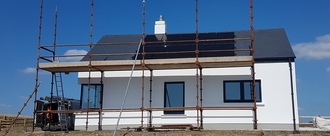- Featured
- Animal Rights
- Anti-racism
- Arts & Culture
- Children
- Climate
- Corporate accountability
- Crime
- Disability rights
- Economic
- Education
- Environment
- Food and Sustainable Production
- Gender Equality
- Governance and Transparency
- Health
- Housing
- LGBT Rights
- Mental health
- Northern Ireland
- Planning
- Privacy and Data Protection
- Rural Inequality
- Social Justice
- Trade
- Transport and Infrastructure
- Workers' Rights
- More
-
Save St.Annes ParkThis is important because money could be better spent in redevelopment in other areas of the city. The park is one of the few left in the city that has been left untouched for years. The park provides many community events throughout the year and brings people together for all types of occasions. This site was privately sold but still comes under the umbrella of the park so if this development goes ahead it opens the flood gates for endless destruction to the park through building. Where does it end?16 of 100 SignaturesCreated by John Mackey
-
Remove the Pay Per View model from GAA games.Grassroots men and women who have given their lives to the GAA are being cut off from their own games, despite the organisation being built on the strength of their work. It is disingenuous to suggest that the pay per view model is financially essential given the rude health of the GAA in 2018. Based on the experiences of other sports with providers like Sky, we believe that in terms of active participation and meaningful engagement, it is detrimental to the GAA community to develop this relationship any further. (see http://historyhub.ie/the-impact-of-pay-tv-on-sport) The elite model which Sky Sports champions is detrimental to the social fabric of areas in which GAA clubs carry a sincere social responsibility. The GAA’s most significant opportunity lies in restoring value to local community. We can shift the balance back towards the club by encouraging the club game to develop alongside the intercounty game, as opposed to well behind it, as is the current reality. Based on recent motions from Clare, Leitrim and Roscommon, it is clear that people at the coalface of GAA life do not support the organisation's decision to use a pay per view model. We respectfully request that you sign the petition in order to send a clear and unified message to the incoming Director General and President. Le meas Paul Rouse Joe Brolly Michael Duignan Diarmuid Lyng4,291 of 5,000 SignaturesCreated by Diarmuid Lyng
-
Barry's tea: Make teabags 100% compostableBarry's teabags are not compostable, they contain 20% polypropylene. This really disappoints me as a long-term loyal Barry's tea drinker. Other teabag manufacturers are able to construct fully compostable teabags, so why can't Barry's? Too often the onus is on the consumer to protect the environment. I believe that corporations also need to step up and do their part. We don't need anymore unnecessary plastics in the world. This petition asks Barry's to change their teabags to make them compostable. A small change that can make a big difference! PG Tips have recently made changes to the way they make teabags. Why not Barry's https://www.telegraph.co.uk/news/2018/02/28/pg-tips-switches-plastic-free-tea-bags-200000-sign-gardeners/13,955 of 15,000 Signatures
-
Stop using plastic cupsWe are drowning in plastic. RTE should lead by example. If you do this it will inspire others too.26 of 100 Signatures
-
No to Toxic Plastics Factory in SkibbereenDespite little information being given to the public throughout the rezoning and planning permission process, the public - which includes those living directly within the vicinity of the site as well as residents within town - have expressed both formally (through submissions) and informally (through public meetings) a number of concerns and objections to the factory. These concerns have been largely left unaddressed and it is for this reason that we demand the halting of the factory's development and the appeal of planning permission for the project. We are concerned about the overall lack of accessible information given to us surrounding the project. Land was rezoned in Poundlick, Skibbereen in April 2016 from "Town Greenbelt" to "Business Use," in order to allow the factory to be built. The rezoning occurred following an inadequate public consultation process, which consisted of one advertisement on p. 33 of the Irish Examiner print edition on February 10, 2016. While this one ad formally commenced the public consultation process, this does not constitute as clear, adequate, or accessible notification. Given that not a single submission was made by a resident of Skibbereen in response to the land rezoning, it is evident that the residents of Skibbereen did not access this information, which is understandable given its singular and obscure location. We should also be able to rely on our elected representatives to communicate such vital information to us in a widely accessible manner. Similarly, those living in the vicinity of the site were only informed that planning permission was sought after PLANNING notices went up at access points to the site. Again, this is an inadequate format for disseminating information, which has severely stunted the public consultation and engagement process on this matter, and means that our informed consent cannot be given. In addition to the poor process of public consultation and notification, our concerns circulate around our health; the environment (no Environmental Impact Assessment has been undertaken and nor has the County Council requested this!); our property value; the traffic that will result; the amount of topsoil that will be removed; the rezoning of land for industry amidst a housing shortage; the lack of consultation with a retirement home in the vicinity. A plastics factory was sued in Athlone in 2005 following a number of health hazards it created within the community, and should such a case be necessary in Skibbereen, this will come at great financial and time cost to our town's residents.]2,152 of 3,000 SignaturesCreated by Hannah Twomey
-
"'Shame'rock for Trump - Not in our name"An Taoiseach is our representative abroad. When he accepts prejudice, racism and bigotry, it shames the people of our country. We feel that such an alliance is not good for our country's reputation and undermines our relationship with other countries. Trump is a despicable human being. A point must be reached where falling at the foot of a powerful man, at the expense of our values and morals and international reputation is not acceptable! "'Shame'rock for Trump: Not in our Name"14 of 100 SignaturesCreated by Concerned Citizen
-
Place Pylons UndergroundEirgrid has an important job to ensure our energy needs are met. However this can not be at any cost. The only issue of placing lines underground for Eirgrid is an increase in cost. Surely protecting our beautiful country is worth the increase in cost. It is also important to protect important landmarks, such as the Hill of Tara, which is seeking UNESCO status. It is time to start looking to the future and build the Interconnector and other national projects underground where they will be safe from storms, and keep our country beautiful for the next generations (and tourists).510 of 600 SignaturesCreated by Daniel James
-
Ban micro plastic from Ireland72% of sampled Irish drinking water is contaminated by microplastics [1]. Fish that we eat have been shown to have consumed plastics [2]. We are eating and drinking tiny fragments of plastic - this has become a human health issue of massive proportions. The Government promised to ban microplastics within a year in 2016, but we are still waiting. [3] Countries all over the world are taking action, and we can too. Richard Bruton, it's time to take decisive action and ban all products containing microplastics! We're asking Richard Bruton to follow the lead of other countries across Europe and put in place a ban on the manufacture and sale of plastic microbeads in this country. They do not biodegrade and persist for a very long time in the environment,[1] https://www.independent.ie/irish-news/our-drinking-water-is-widely-contaminated-with-tiny-bits-of-plastic-36104664.html [2] https://theconversation.com/bait-and-switch-anchovies-eat-plastic-because-it-smells-like-prey-81607 [3] http://www.thejournal.ie/readme/micro-beads-there-will-be-more-waste-plastic-in-the-ocean-than-fish-by-2050-3667684-Oct2017/6,223 of 7,000 SignaturesCreated by Clodagh Schofield

-
Say no to plastic cupsIreland is the EU’s top producer of plastic waste. In 2015, we produced 61kg of plastic per inhabitant (http://jrnl.ie/3786393). Despite what you might think, takeaway cups are neither recyclable nor compostable. This means that approximately 200 million takeaway cups are dumped in landfill or incinerated in Ireland each year (https://consciouscup.ie). Cork City Council just banned single use non-recyclable cups, and council workers are being encouraged to use reusable cups (https://yaycork.ie/2018/01/10/cork-city-council-banned-disposable-coffee-cups/).395 of 400 SignaturesCreated by Lorna Gillanders
-
Ban Use of Plastic Cups Cork County CouncilWe are drowning in plastic and every year we dump millions of non recyclable cups every year. Cork City Council just banned non recyclable cups - why can't Cork County Council!146 of 200 SignaturesCreated by Siobhan O'Donoghue
-
End Use of Non Recyclable Coffee Cups2 million are going to landfill week and there are cups every where on the site paths and in our parks.14 of 100 SignaturesCreated by Ann Walsh
-
Rooftop Solar for our homes, farms, SMEs & community buildings!If the incentives are directed towards the large energy utility companies including the ESB, Board Gas, Coilte, Board Na Mona etc and large private companies funded by venture capitalists they will build large scale solar parks mainly in the South and South East of Ireland. This would be good news for Ireland for efforts to meet our 2020 C02 obligations and a renewable future. But there will be no benefits for the majority of the population of Ireland. We will continue to pay the second highest electricity prices in the EU. A grant and a feed in tariff and possibly a generation tariff for the installation of Solar PV on houses, farm buildings and all types of commercial buildings could reduce the annual electricity bills by up to 50% and contribute towards a large reduction on Ireland's dependency on imported fuel bill of €6 billion per year.15 of 100 SignaturesCreated by Barry Sharkey



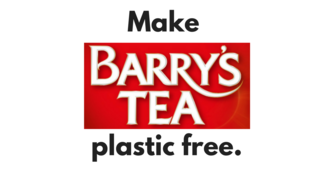
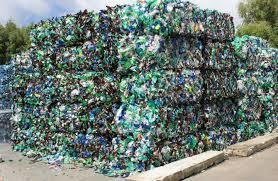.jpeg)
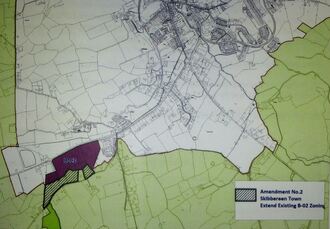

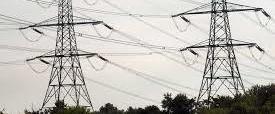

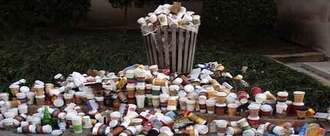
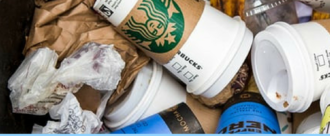.png)
.png)
